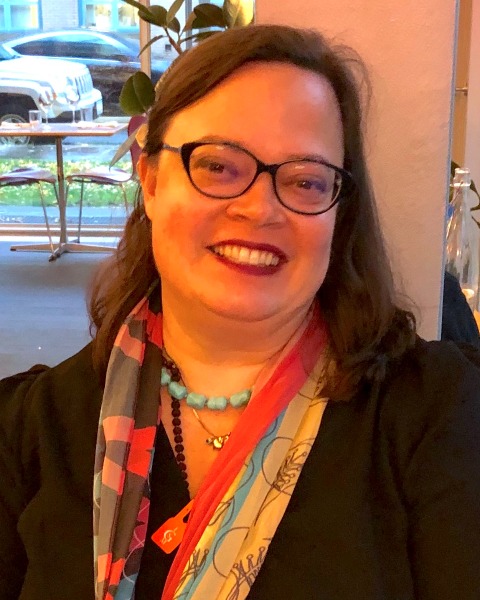Advancing Equity and Justice
66 - How Indigenous and Other Diverse Communities Inform Human Research Protection Program Best Practices: A Scoping Literature Review
Sunday, December 3, 2023

Kristin Bacon, MPH, CIP
IRB Coordinator
University of Hawai‘i
Honolulu, Hawaii, United States
Author(s)
Background: Few publications describe how IRBs are meeting The Association for the Accreditation of Human Research Protection Programs Inc. (AAHRPP) Standard I-4. Thus, the purpose was to identify and summarize literature to support Human Research Protection Programs (HRPPs) to better meet Standard I-4, and answer prescriptive questions where actions are obligatory.
Methods: Research Questions:
What are the concerns diverse and indigenous communities are addressing by creating their own research ethics review boards and IRBs?
How are these concerns addressed by communities through protection programs, education, and engagement?
A conceptual analysis scoping literature review was conducted: article keyword search; screening; and data extraction. 1,832 articles were then analyzed for key themes. Themes were identified, resulting in recommendations for future actions.
Conclusion: The literature review yielded 29 articles describing work of 19 programs or communities concerned with research ethics. The concerns that diverse and indigenous communities addressed by creating their own research ethics review boards and IRBs included research ethics violations, cultural and community stigma, mistrust of research, cultural and data misappropriation, and inadequate mainstream IRBs. Concerns were addressed through establishing protection programs such asTribal/Community IRBs or Research Ethics Review Boards; creating guidelines for research; and requiring community pre publication and presentation review. For researchers, community concerns were addressed through providing training in ethics and education designed for researchers who wish to work with AI/AN communities and other diverse communities. Researchers should be required to consult with the community about how community consent and individual consent for research participation should take place and seek permission from Tribal governments before conducting research with tribal members. Researchers should be encouraged to use CBPR approaches to build partnerships with communities, and researchers should produce some type of media about the research, featuring what was most helpful to the community, and report results back to the IRB.
As regulatory entities, HRPPS are uniquely positioned to require ethical standards for research that involves human subjects, especially populations that are often marginalized yet utilized in research. The beginnings of a re-establishment of trust between the researcher community and diverse communities is possible as evidenced by the content of the articles in this scoping review, and vital to ensuring that research is truly beneficial to all.
Limitations: Scoping reviews are broad, thus resulting in broader conclusions. In this review, the majority of the articles found focused on indigenous communities and no other diverse communities such as LGBTQIA+.
Discussion: These findings suggest a number of actions that HRPPs could take in terms of improving research partnership protocols and connections with indigenous and other diverse communities. HRPP personnel could consult with communities to create community partnerships. Using existing and established resources, HRPPs could support the establishment of community IRBs or community research ethics review panels to create guidelines, policies, and establish procedures to guide researchers in best practices for working with communities. Future work could include research into how HRPPS are working with multiple communities (LGBTQIA+, underrepresented, and etc.) to establish relationships to meet AAHRPP Standard I-4.
Methods: Research Questions:
What are the concerns diverse and indigenous communities are addressing by creating their own research ethics review boards and IRBs?
How are these concerns addressed by communities through protection programs, education, and engagement?
A conceptual analysis scoping literature review was conducted: article keyword search; screening; and data extraction. 1,832 articles were then analyzed for key themes. Themes were identified, resulting in recommendations for future actions.
Conclusion: The literature review yielded 29 articles describing work of 19 programs or communities concerned with research ethics. The concerns that diverse and indigenous communities addressed by creating their own research ethics review boards and IRBs included research ethics violations, cultural and community stigma, mistrust of research, cultural and data misappropriation, and inadequate mainstream IRBs. Concerns were addressed through establishing protection programs such asTribal/Community IRBs or Research Ethics Review Boards; creating guidelines for research; and requiring community pre publication and presentation review. For researchers, community concerns were addressed through providing training in ethics and education designed for researchers who wish to work with AI/AN communities and other diverse communities. Researchers should be required to consult with the community about how community consent and individual consent for research participation should take place and seek permission from Tribal governments before conducting research with tribal members. Researchers should be encouraged to use CBPR approaches to build partnerships with communities, and researchers should produce some type of media about the research, featuring what was most helpful to the community, and report results back to the IRB.
As regulatory entities, HRPPS are uniquely positioned to require ethical standards for research that involves human subjects, especially populations that are often marginalized yet utilized in research. The beginnings of a re-establishment of trust between the researcher community and diverse communities is possible as evidenced by the content of the articles in this scoping review, and vital to ensuring that research is truly beneficial to all.
Limitations: Scoping reviews are broad, thus resulting in broader conclusions. In this review, the majority of the articles found focused on indigenous communities and no other diverse communities such as LGBTQIA+.
Discussion: These findings suggest a number of actions that HRPPs could take in terms of improving research partnership protocols and connections with indigenous and other diverse communities. HRPP personnel could consult with communities to create community partnerships. Using existing and established resources, HRPPs could support the establishment of community IRBs or community research ethics review panels to create guidelines, policies, and establish procedures to guide researchers in best practices for working with communities. Future work could include research into how HRPPS are working with multiple communities (LGBTQIA+, underrepresented, and etc.) to establish relationships to meet AAHRPP Standard I-4.
